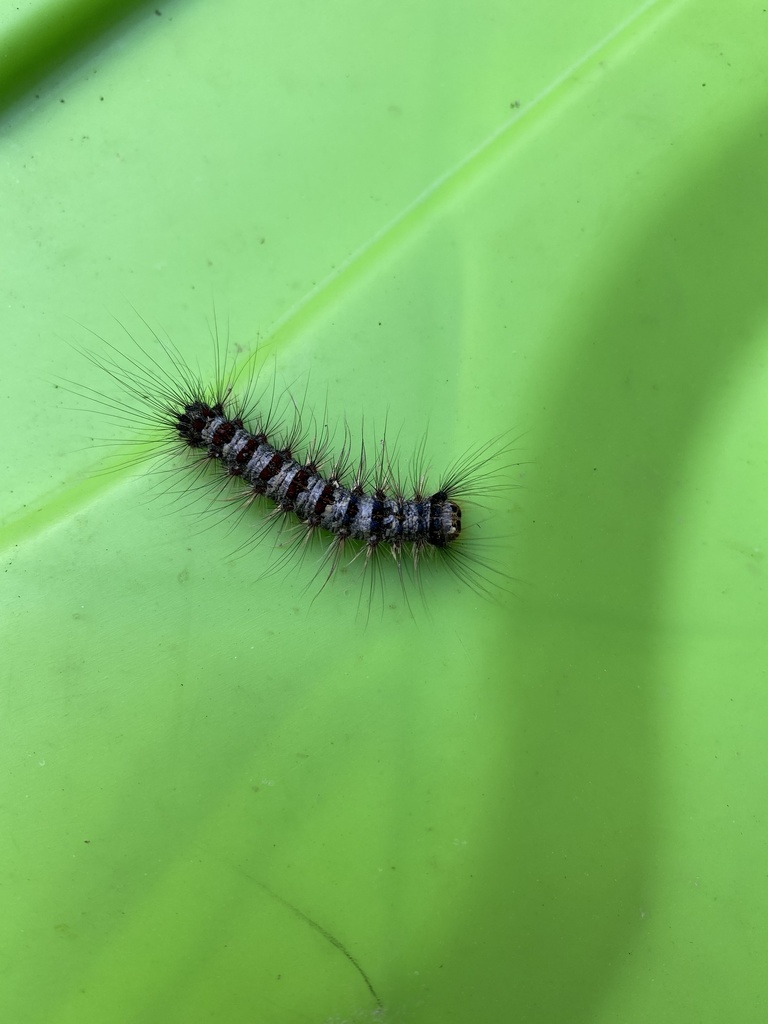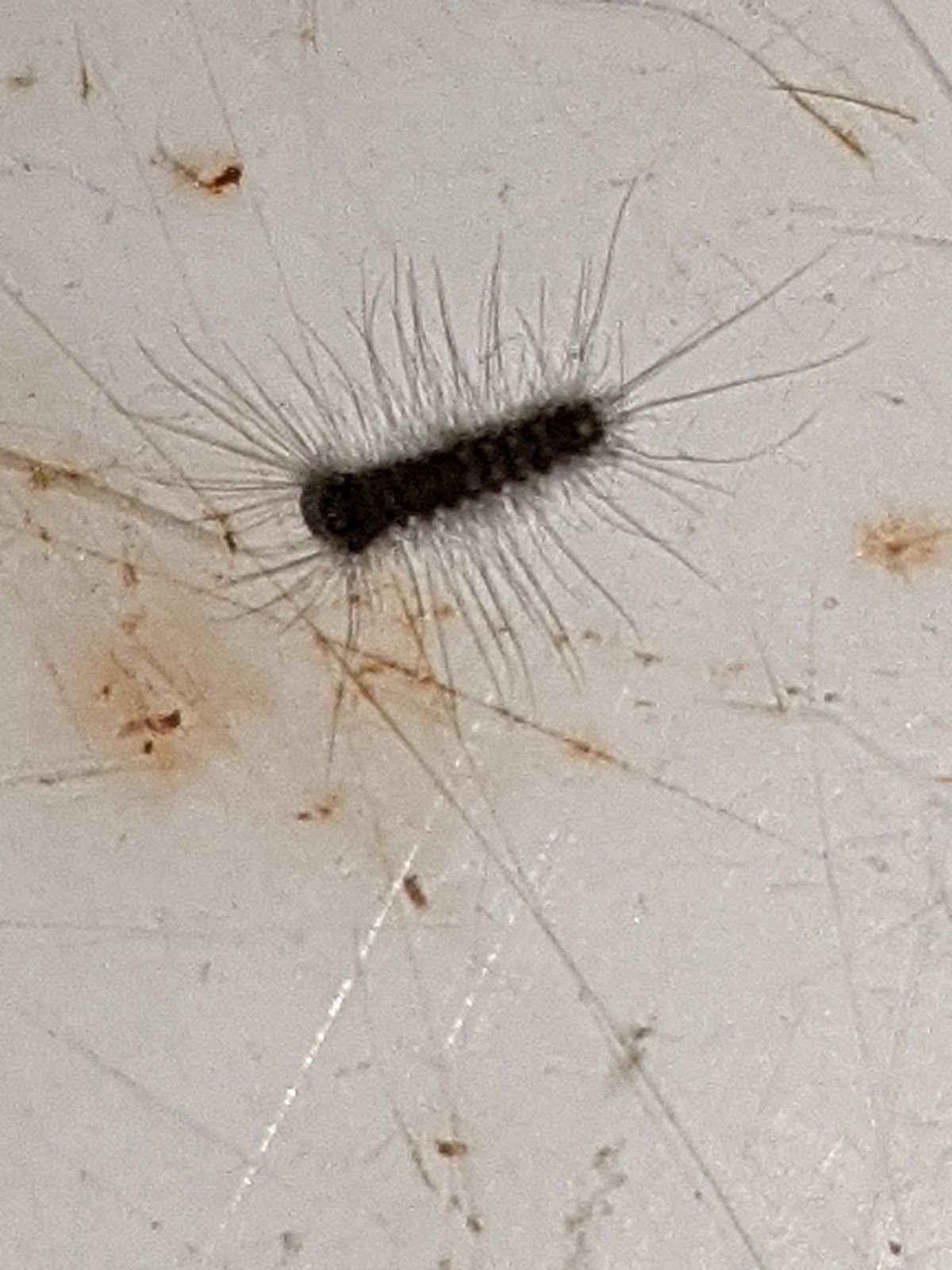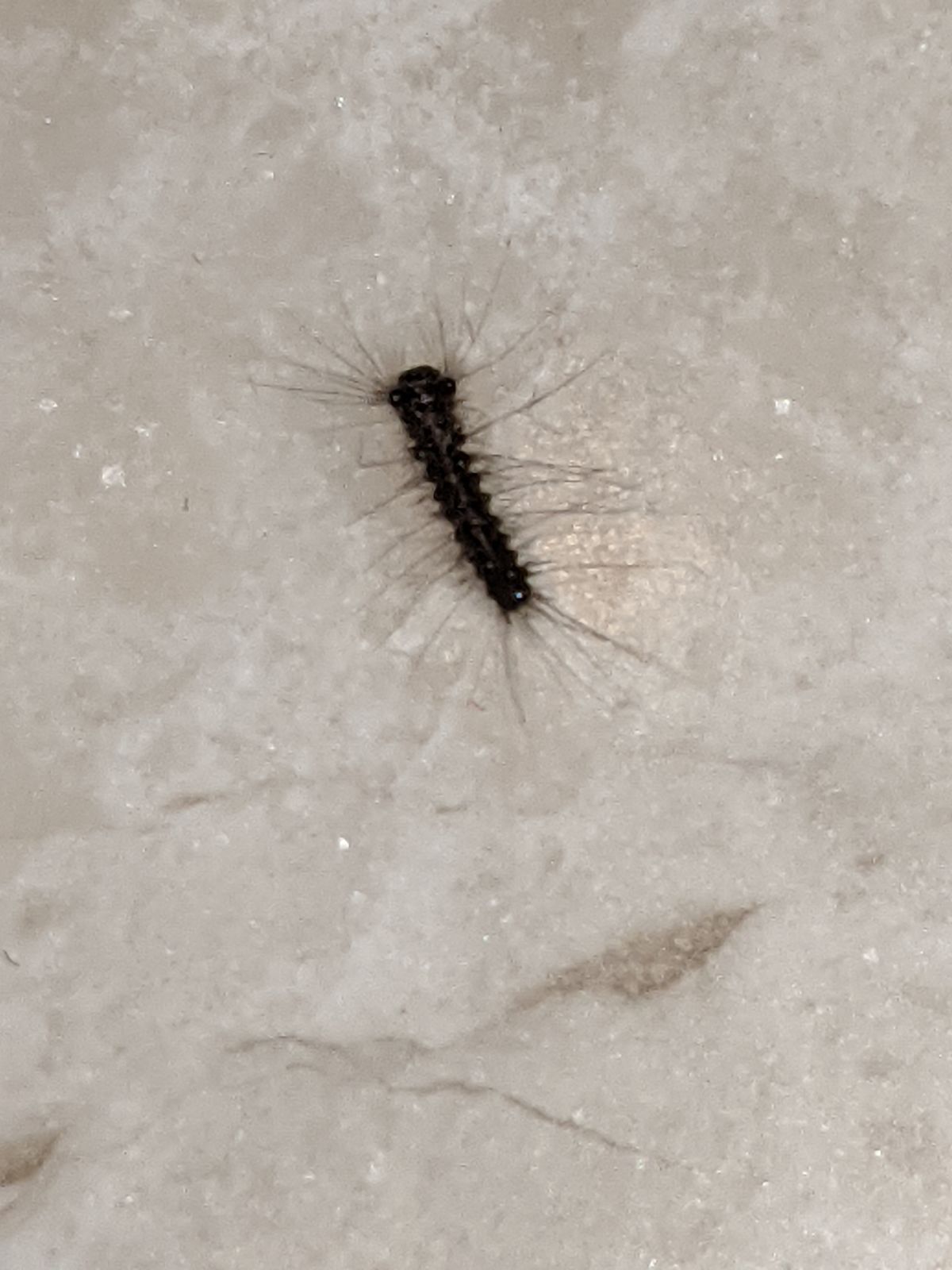Found in NY outside on mailbox in a group of about 1000, it is about 1/8" long (not counting legs), with dozens of very hair-like legs. The front (?) of the bug appears to have larger leg/antennae, with the longest 2 legs pointed straight backwards.
-
$\begingroup$ Having posted an answer, now I'm unsure. The head seems larger on yours, but that may be a function of age and species. perhaps an expert will happen along and clear-up the matter. There are after all, loads and loads of different moth-types around in N America. $\endgroup$– Jiminy Cricket.Commented May 3 at 0:59
-
1$\begingroup$ @JiminyCricket. I think it's likely to be a larval moth or butterfly, would need better photos. I don't think carpet beetle larvae tend to cluster. House centipede (Scutigera) also sprang to mind, but that definitely isn't right, it's just the lighting making the hairs look like Scutigera legs $\endgroup$– bob1Commented May 3 at 1:10
-
$\begingroup$ @bob1 I agree; I was thinking Scutigera, but those have a "bend" in their legs that this doesn't have $\endgroup$– XenalinCommented May 3 at 1:14
-
$\begingroup$ @Xenalin If you've got any pictures from the side it might help. There are quite a few hairy caterpillars out there. Could be something like Painted Apple Moth or one of the "tent" moths. Could also try posting to iNaturalist and see what they say. $\endgroup$– bob1Commented May 3 at 1:28
-
$\begingroup$ @JiminyCricket you are right! Just heard some info from the area that they are spongy moth larvae and are infesting the area. The mailman is delivering the mail to everyone's door because they are on every mailbox! $\endgroup$– XenalinCommented May 3 at 17:38
1 Answer
This is the larvae of the Spongy Moth (Lymantria dispar) of the Family Erebidae, it is fairly distinctive and frequent.
This species is also invasive to your area:
Lymantria dispar has been introduced to several continents and is now additionally found as an invasive species in Africa, North America and South America. The polyphagous larvae live on a variety of deciduous and coniferous trees and can cause severe damage in years of mass reproduction. Due to these features, Lymantria dispar is listed among the world's 100 worst invasive alien species. Source: https://wikipedia.org

Image ref: https://www.inaturalist.org/photos/135361551, Photo 135361551, (c) nikolettaj, some rights reserved (CC BY-NC)
-
-
$\begingroup$ @bob1 Haha, thanks Bob, nice to see you on another site. I think biology is the best site for me right now lol. Just found out that it existed. Time to dig through all the old incorrect species-id Q and A's $\endgroup$– ArrowCommented May 7 at 0:37


